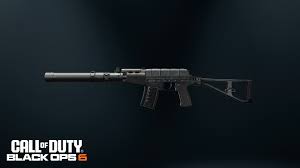Artificial intelligence in Call of Duty detects toxic players.

New AI-powered voice chat moderation technology will aim to block players who exhibit disruptive behavior in Warzone, Modern Warfare 2 , Modern Warfare 3 and future games.
On August 30, the Call of Duty team announced that they were introducing new AI-based voice chat moderation technology into the franchise. This new feature will help developers identify and subsequently ban players who exhibit toxic behavior.
The new AI technology will arrive with the Season 5 Reloaded update and will debut in North America in an initial beta when it begins moderating voice chats in Modern Warfare 2 and Warzone. This feature is then scheduled for a worldwide release for Modern Warfare 3 on November 10th.
Activision teamed up with software company Modulate to create real-time AI-powered voice chat moderation technology that they brought to their Call of Duty games.

The technology will recognize toxic speech in real time, becoming another tool at the Call of Duty anti-toxicity team’s disposal.
The FAQ sheds light on how player reporting and the new technology will combine for the best results: “Player reporting is still valuable and available in-game for players to report instances of toxic or destructive behavior they may be experiencing. collide; however, voice chat moderation will increase our ability to identify and address bad behavior that goes undetected.”
Essentially, the technology uses the Call of Duty Code of Conduct to identify toxic speech. The developers then explained the process: “Found violations of the Code of Conduct may require additional reviews of relevant records to determine context before an enforcement decision is made. Therefore, the actions taken will not be immediate.”
While voice chat in Call of Duty games will be monitored and recorded, the FAQ also states that small talk and friendly banter will be tolerated. Incidents of “hate speech, discrimination, sexism and other types of harmful speech, as outlined in the Code of Conduct,” will not be tolerated.





